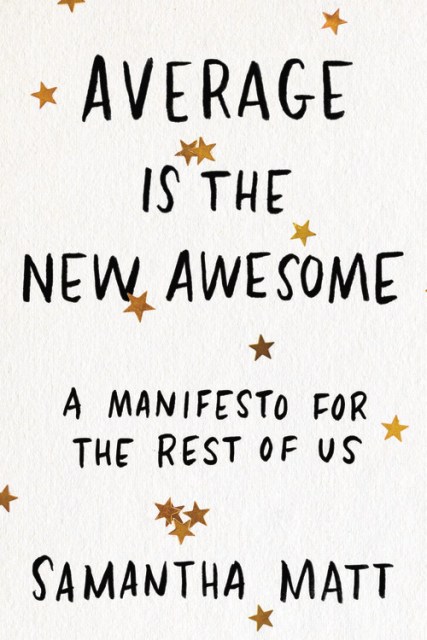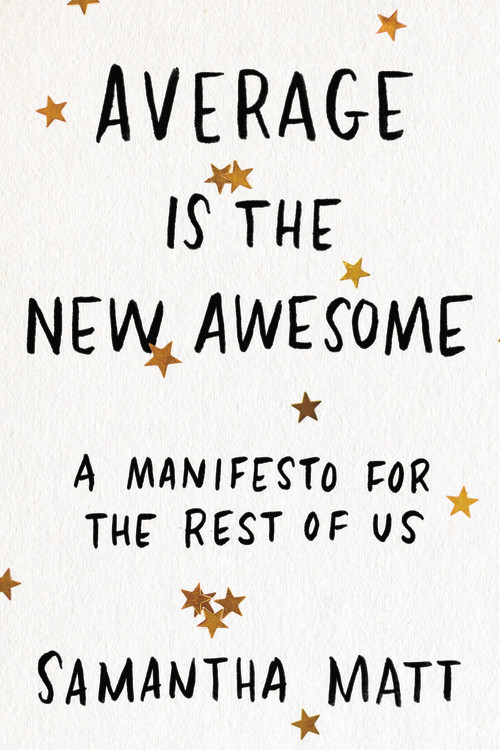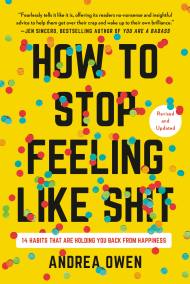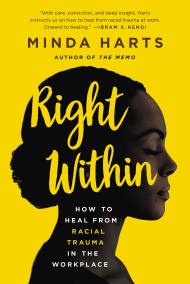By clicking “Accept,” you agree to the use of cookies and similar technologies on your device as set forth in our Cookie Policy and our Privacy Policy. Please note that certain cookies are essential for this website to function properly and do not require user consent to be deployed.
Average is the New Awesome
A Manifesto for the Rest of Us
Contributors
Formats and Prices
- On Sale
- Jan 7, 2020
- Page Count
- 240 pages
- Publisher
- Seal Press
- ISBN-13
- 9781580059350
Price
$16.99Price
$22.99 CADFormat
Format:
- Trade Paperback $16.99 $22.99 CAD
- ebook $11.99 $15.99 CAD
- Audiobook Download (Unabridged)
This item is a preorder. Your payment method will be charged immediately, and the product is expected to ship on or around January 7, 2020. This date is subject to change due to shipping delays beyond our control.
Buy from Other Retailers:
A celebration of ordinary awesomeness, for all of us who were told “You can do anything!” and then found out we actually can’t
Crappy homes, lame love lives, getting passed over for a great job (again)–not what we expected for our adulthoods. Americans tell their children you can become anything! But let’s face it–most of us can’t.
Sure, some of our peers go on to become astronauts or billionaires. But most of us don’t. In Average Is the New Awesome, Samantha Matt offers encouragement to us regular humans. Full of hilarious stories and insightful advice, this is a manifesto for ordinary awesomeness–for the beauty that can be found when we acknowledge that good enough really is good enough, and that greatness is ours to define.
-
Named a best self-help book for 2020 by Parade Magazine
Featured as one of the Toronto Star's self-help books to get you motivated in 2020
Named a book to watch by Porchlight Book Company -
"Matt's witty book cuts through the misleading 'perfection' promoted in the arts, the media, and in our social media feeds with this empowering, actionable manifesto."BookRiot
-
"Funny and strikingly honest, this book is one you'll hold close and relate to in every way you need to right now. Average is the New Awesome gives you an answer to that restless feeling you carry around with you, telling you that being average doesn't mean you have failed. Being average means you're doing just fine. Samantha Matt's advice, juxtaposed with hilarious personal stories, makes you feel like you're spending the afternoon with a close friend who is setting you straight and changing your life."JEN GLANTZ, author of Always a Bridesmaid (For Hire) and When You Least Expect It
-
"A heartfelt pep talk of a book. A true reminder that when you're feeling average, you might just be extraordinary."MEREDITH GOLDSTEIN, author of Can't Help Myself: Lessons and Confessions from a Modern Advice Columnist
-
"Samantha Matt nails the unique concoction of concerns that plague almost all of us -- and even better, her wise, witty, warm advice offers practical solutions."HANNAH ORENSTEIN, author of Playing with Matches and Love at First Like
-
"Samantha Matt's Average Is The New Awesome has struck a chord with me at exactly the right point in my life. It's clever and relatable -- which I guess makes me average. But you know what? After reading Samantha's book, I'm okay with it!"CHARLEE FAM, author of Last Train to Babylon
-
"A fun and refreshingly honest take on life for the social media generation. Holding yourself up to an impossible standard is so overrated, and Samantha Matt's always (thankfully) quick to remind us of that."SARAH SOLOMON, author of Guac Is Extra but So Am I
Newsletter Signup
By clicking ‘Sign Up,’ I acknowledge that I have read and agree to Hachette Book Group’s Privacy Policy and Terms of Use






